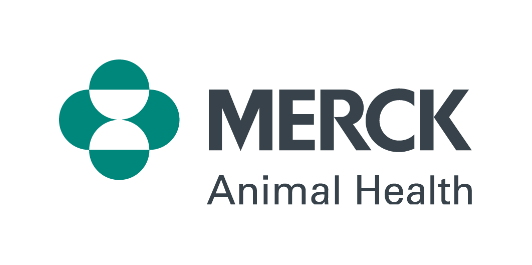MSD Animal Health Announces New Indication for PANACUR® AquaSol for Swine in Europe
Now Approved to Treat Trichuris suis, a Major Parasite Infecting Swine
BOXMEER (The Netherlands) 15 March, 2013 – MSD Animal Health (known as Merck Animal Health in USA and Canada) today announced the European approval of a new indication for PANACUR® AquaSol (fenbendazole 200 mg/mL) to effectively treat swine infected with Trichuris suis (T. suis), a whipworm found worldwide that causes multifocal inflammation. Heavy infections often cause diarrhea and emaciation.
PANACUR® AquaSol is a dewormer for swine administered through drinking water that stays in suspension without re-stirring, ensuring more uniform intake and proper dosing of the field-proven anthelmintic. In a single-site, dose confirmation study conducted at a German University, PANACUR® AquaSol was found to be significantly efficacious (93% worm count reduction) in the treatment of swine naturally infected with T. suis when compared to an untreated control group. PANACUR® AquaSol was well tolerated by the study animals.
“The infestation of T. suis in swine can have a significant economic impact for swine producers, if not treated quickly and effectively,” stated Dr. Alex Eggen, Director, MSD Animal Health. “The innovative wet-milling process for PANACUR® AquaSol produces very fine particles that mix easily in water and stay suspended for 24 hours without agitation, making treatment for T. suis easy and effective and that is highly desirable for especially those producers that use outdoor production facilities.”
PANACUR® AquaSol, which can be used in weaners, growers, gestating sows and boars, is also indicated for the treatment and control of infections with Ascaris suum (adult, intestinal and migrating larval stages) and Oesophagostomum spp. (adult stages). The applied dose regimen is a daily dose of 2.5 mg fenbendazole (FBZ)/kg bodyweight (BW) for 2 consecutive days for a total dose of 5 mg FBZ/kg BW. For T. suis infections, the applied dose regimen is a daily dose of 2.5 mg FBZ/kg BW for 3 consecutive days, for a total dose of 7.5 mg FBZ/kg BW.
About PANACUR®
PANACUR® is a highly effective range of anthelminthic products based on the active ingredient fenbendazole and is used against a wide spectrum of epidemiologically and economically important worm infections. It is used for the treatment of immature (including eggs), and mature stages of nematodes of the gastro-intestinal and respiratory tracts of many species including cattle, sheep, goats, swine, horses dogs and cats. PANACUR® is available as tablets, paste, pellets, powder, granules, flakes, suspension and now, AquaSol suspension.
About MSD Animal Health
Today’s Merck is a global healthcare leader working to help the world be well. MSD Animal Health, known as Merck Animal Health in the United States and Canada, is the global animal health business unit of Merck. MSD Animal Health offers veterinarians, farmers, pet owners and governments one of the widest range of veterinary pharmaceuticals, vaccines and health management solutions and services. MSD Animal Health is dedicated to preserving and improving the health, well-being and performance of animals. It invests extensively in dynamic and comprehensive R&D resources and a modern, global supply chain. MSD Animal Health is present in more than 50 countries, while its products are available in some 150 markets. For more information, visit www.merck-animal-health.com.
Forward-Looking Statement
This news release includes “forward-looking statements” within the meaning of the safe harbor provisions of the United States Private Securities Litigation Reform Act of 1995. These statements are based upon the current beliefs and expectations of Merck’s management and are subject to significant risks and uncertainties. If underlying assumptions prove inaccurate or risks or uncertainties materialize, actual results may differ materially from those set forth in the forward-looking statements.
Risks and uncertainties include but are not limited to, general industry conditions and competition; general economic factors, including interest rate and currency exchange rate fluctuations; the impact of pharmaceutical industry regulation and health care legislation in the United States and internationally; global trends toward health care cost containment; technological advances, new products and patents attained by competitors; challenges inherent in new product development, including obtaining regulatory approval; Merck ability to accurately predict future market conditions; manufacturing difficulties or delays; financial instability of international economies and sovereign risk; dependence on the effectiveness of Merck patents and other protections for innovative products; and the exposure to litigation, including patent litigation, and/or regulatory actions.
Merck undertakes no obligation to publicly update any forward-looking statement, whether as a result of new information, future events or otherwise. Additional factors that could cause results to differ materially from those described in the forward-looking statements can be found in Merck’s 2011 Annual Report on Form 10-K and the company’s other filings with the Securities and Exchange Commission (SEC) available at the SEC’s Internet site (www.sec.gov).
